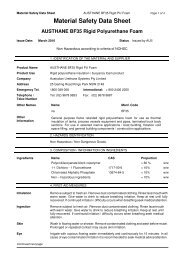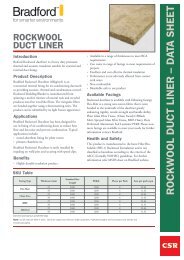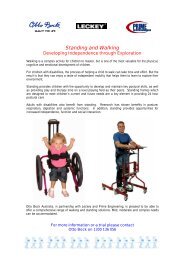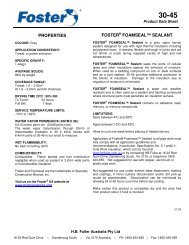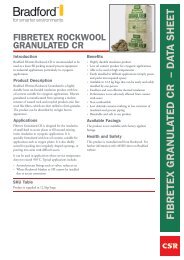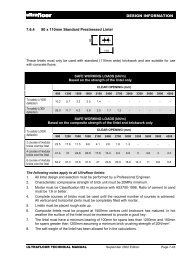Life Education Australia annual review 2O1O - Hunter Life Education
Life Education Australia annual review 2O1O - Hunter Life Education
Life Education Australia annual review 2O1O - Hunter Life Education
You also want an ePaper? Increase the reach of your titles
YUMPU automatically turns print PDFs into web optimized ePapers that Google loves.
Why we do it<strong>Life</strong> <strong>Education</strong> was founded in the late1970s because of heightened concernsabout the misuse of illicit drugs amongstyoung people, and the immediate,sometimes tragic consequences of suchpoor health behaviours.We focused on a preventive strategy toreduce the demand for drugs, throughthe education of children and youngpeople.We recognised that an individual’sknowledge, attitudes and beliefsabout their health influence theirhealth behaviours, and consequentlytheir present and future health status.The likelihood of an individual beingmotivated to adopt health-enhancingbehaviours – rather than behaviourswhich are not conducive to health– is in part a function of the level ofknowledge, attitudes and skills which theperson has in relation to health risks.³The short term risks associated with themisuse of drugs, in particular alcohol,are still prevalent today. Not only area large number of teenagers drinkingregularly – but they are drinkingexcessively when they do drink -• 25% of 16-17 year olds drink atlevels that risked harm in the shortterm at least once a month.• 45% of 18-19 year olds drink atlevels that risked harm in the shortterm at least once a month. 4What has also emerged over the last 30years is a better understanding of thelong term risks to personal health andsafety 5 associated with a broader rangeof poor, potentially modifiable healthbehaviours – particularly smoking aswell as alcohol misuse.• While having fallen from its levelof 30% in 1999, in 2005 17% ofstudents aged 16-17 years hadsmoked in the past week.6The focus of the work of <strong>Life</strong> <strong>Education</strong>in the Primary and Secondary schoolyears is on issues to do with drugrelated issues. While motivated by alonger term Vision of life free from theeffects of drug misuse, we recognisethe importance of intervening earlyin life and promoting in children astrong and sustainable appreciationof the importance of positive healthbehaviours such as a balanced diet andregular exercise. Hence the focus of ourearly work with younger children onissues of first principle – developing anappreciation of their body, how it works,and how to best look after it and keepit safe.Beyond an understanding of theirphysical development, we also recognisethe importance of individual social andemotional factors and the significantinfluence they have on risky healthbehaviours. A consistent focus of ourwork across the primary school years isin assisting students to understand andbetter manage relationship dynamics,including responding to peer pressure aswell as bullying.While an initiative focused on educatingand empowering individuals – childrenand young people – enabling them tomake the healthiest choices they can,<strong>Life</strong> <strong>Education</strong> also recognises that forits work to be truly effective, it needsto form part of the comprehensiveand integrated ‘whole-of-community’approach necessary to generate thesustained behavioural change it isseeking.We recognised that anindividual’s knowledge,attitudes and beliefsabout their healthinfluence their healthbehaviours, andconsequently theirpresent and futurehealth status.3See <strong>Australia</strong>’s Health 2008. <strong>Australia</strong>n Institute of Health and Welfare. Canberra. Chapter 4. Health Determinants : the Keys to Prevention.42007 National Drug Strategy Household Survey. What makes these figures even more concerning is that since this survey, the National Health and Medical ResearchCouncil has reset its guidelines for alcohol consumption. Applying these revised guidelines, the above indicated mentioned statistics would have been worse still.5The emergence of many chronic diseases such as cancer, heart disease, and diabetes, which today account for most of the disease burden in <strong>Australia</strong>, is influencedby potentially modifiable risky behaviours such as tobacco use, alcohol misuse and the use of illicit drugs as well as poor diet, physical inactivity and excess weight.These diseases not only result in death and incapacity, they are also a massive economic burden on the community and the health system.6Drug Strategy Branch, <strong>Australia</strong>n Government Department of Health and Ageing. 2006.8



